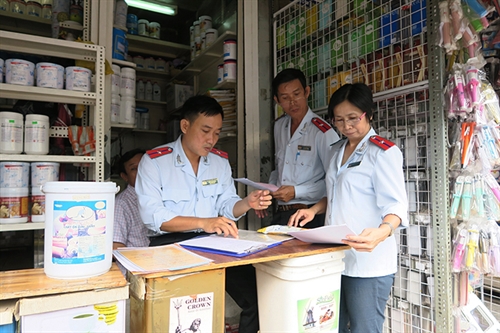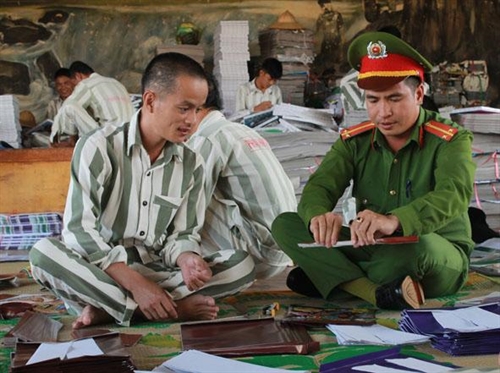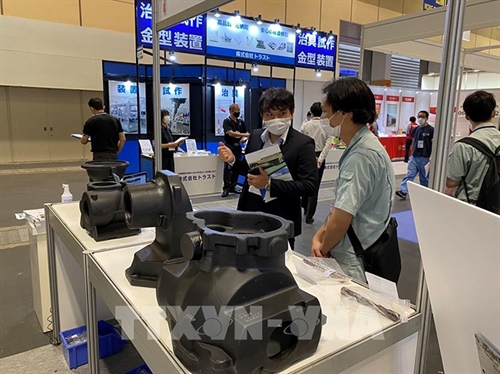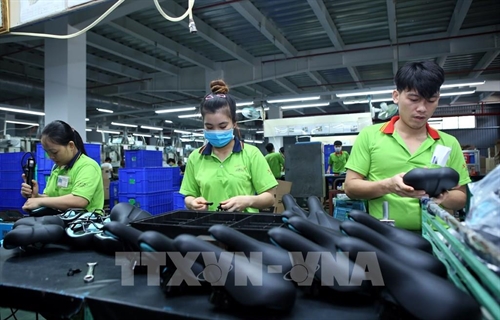The Ministry of Industry and Trade (MOIT) has recently unveiled a draft amended law on protection of consumer rights, proposing several new regulations on protection of rights of consumers engaged in particular transactions with business organizations and individuals.
 |
| Food safety inspectors check goods and invoices at Kim Bien market in Ho Chi Minh City__Photo: Dinh Hang/VNA |
In addition to 29 new articles, the draft law also revises 38 other articles of the 2010 Law on Protection of Consumer Rights while retaining 13 ones. Especially, the draft has a new chapter on protection of consumer rights in particular transactions, i.e., remote transactions, provision of continuous services and direct selling.
As defined in the draft, remote transaction means a product or service transaction which is carried out in the cyberspace or by other indirect means between consumers and a business organization or individual and in which consumers could not check and come into direct contact with products and services before entering into the transaction. Provision of continuous services is understood as provision of services for a term of three months or more or an indefinite term.
Meanwhile, direct selling refers to the sale of products or provision of services in which the traders proactively approach and introduce their products and services for sale to consumers in the forms of door-to-door selling, multi-level marketing, and non-store retailing.
Worthy of note, the draft proposes prohibiting goods sellers and service providers from contacting consumers to market their goods or services against the latter’s will twice or more or committing other acts affecting the latter’s work and life.
The MOIT also specifies prohibitions applicable to online intermediary platforms. Accordingly, online intermediary platforms must not force or prevent consumers from registering or using other online intermediary platforms as a compulsory condition for use of their services. They would also be prohibited from preventing consumers from removing pre-installed software or apps or forcing them to install software or apps attached to online intermediary platform services. Besides, the application of technical measures to prevent the display of, or to dishonestly display, consumers’ feedback and reviews about products, services or traders would also be banned.
Violators would, depending on the nature and severity of their violations, be administratively sanctioned and required to make compensation for damage caused by their acts. Particularly, individuals committing serious violations might be examined for penal liability.
The Vietnamese version of the draft is available on moit.gov.vn for public comment.- (VLLF)









